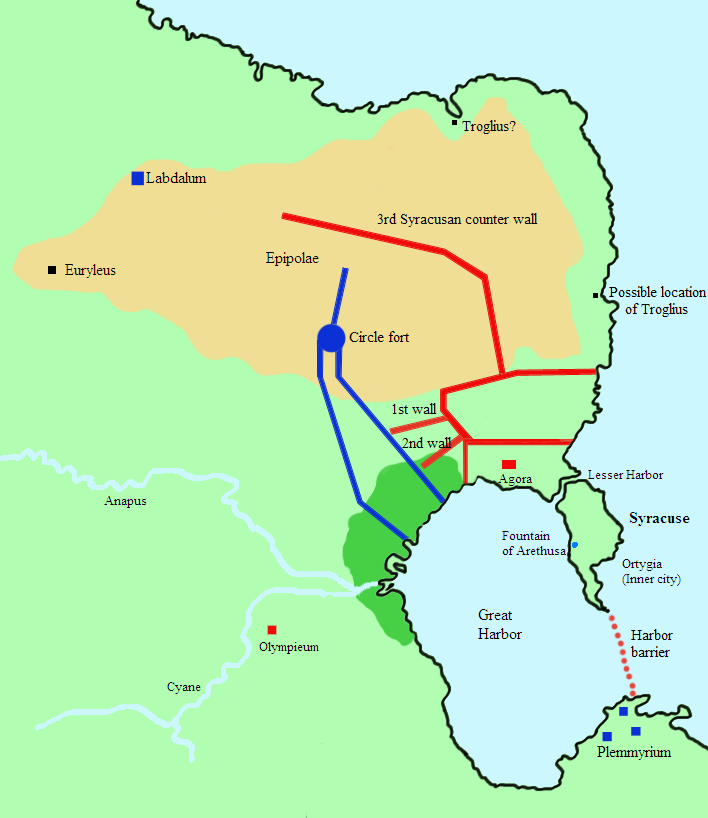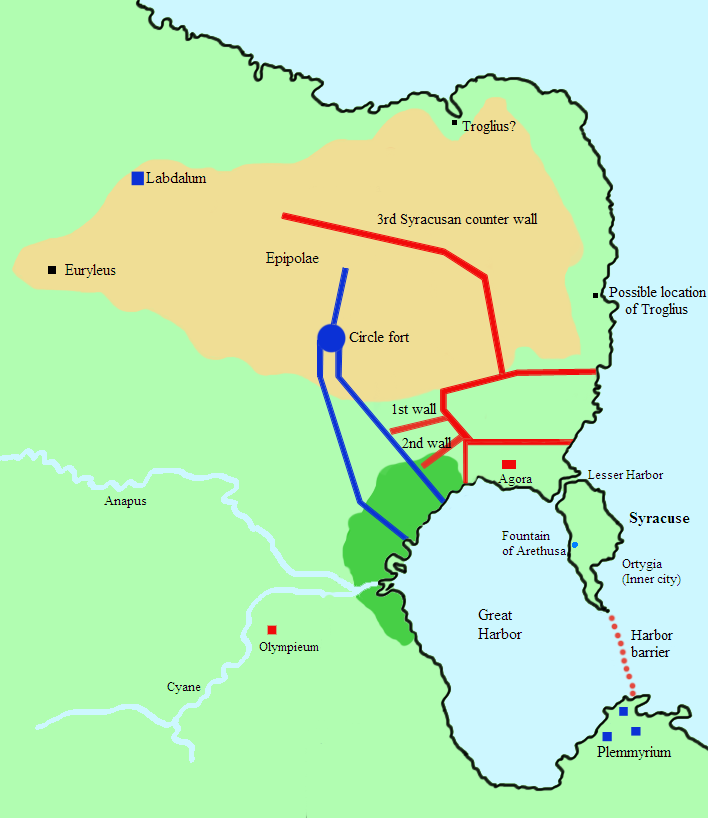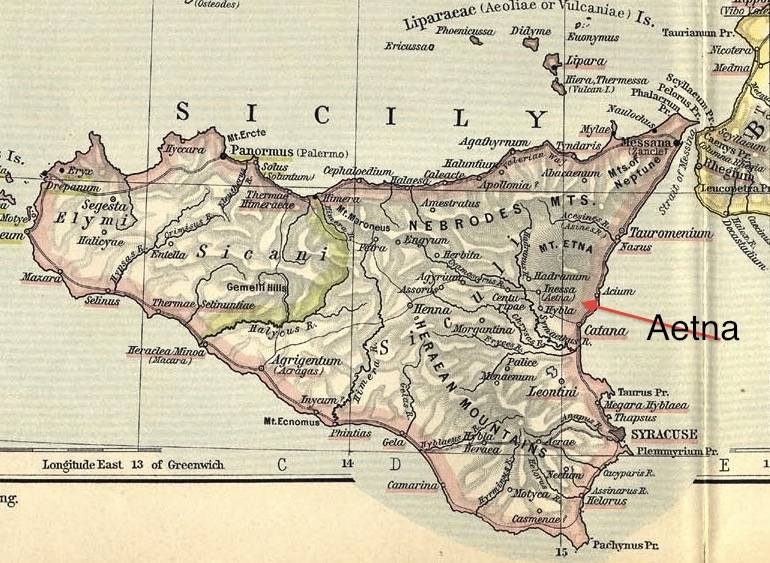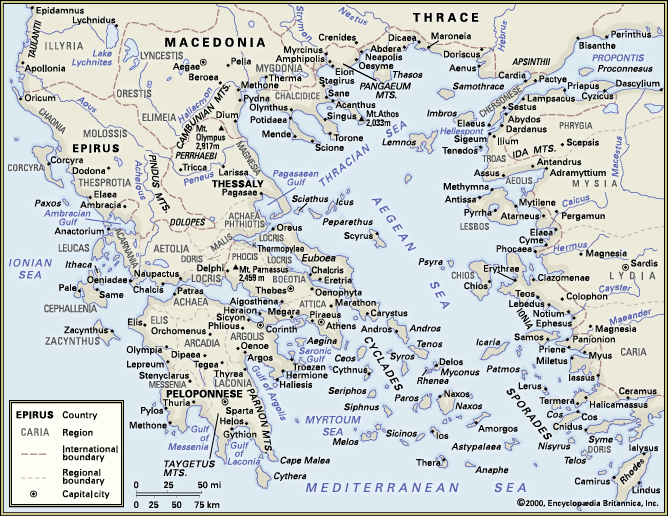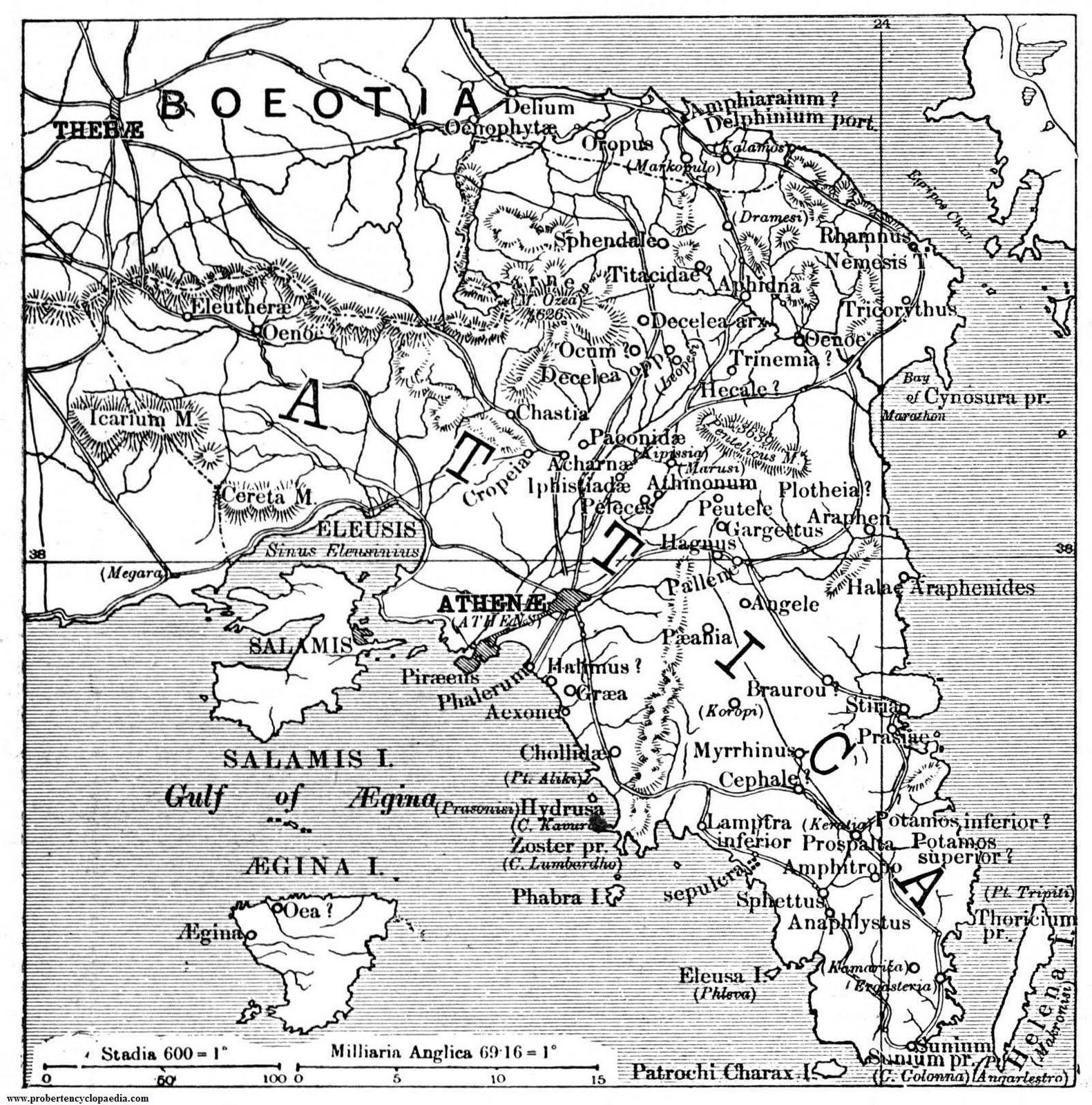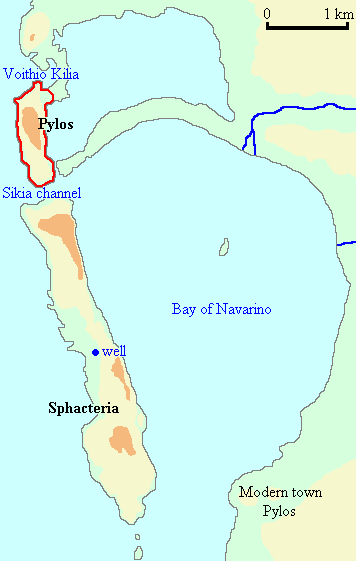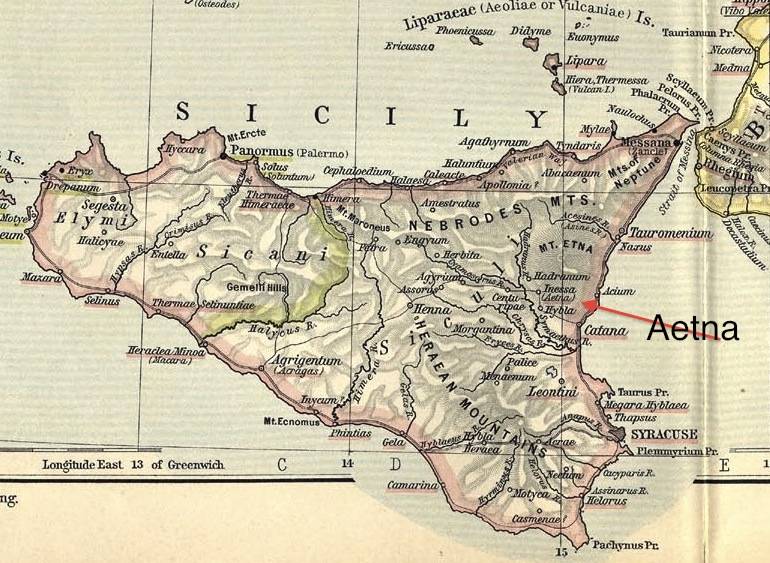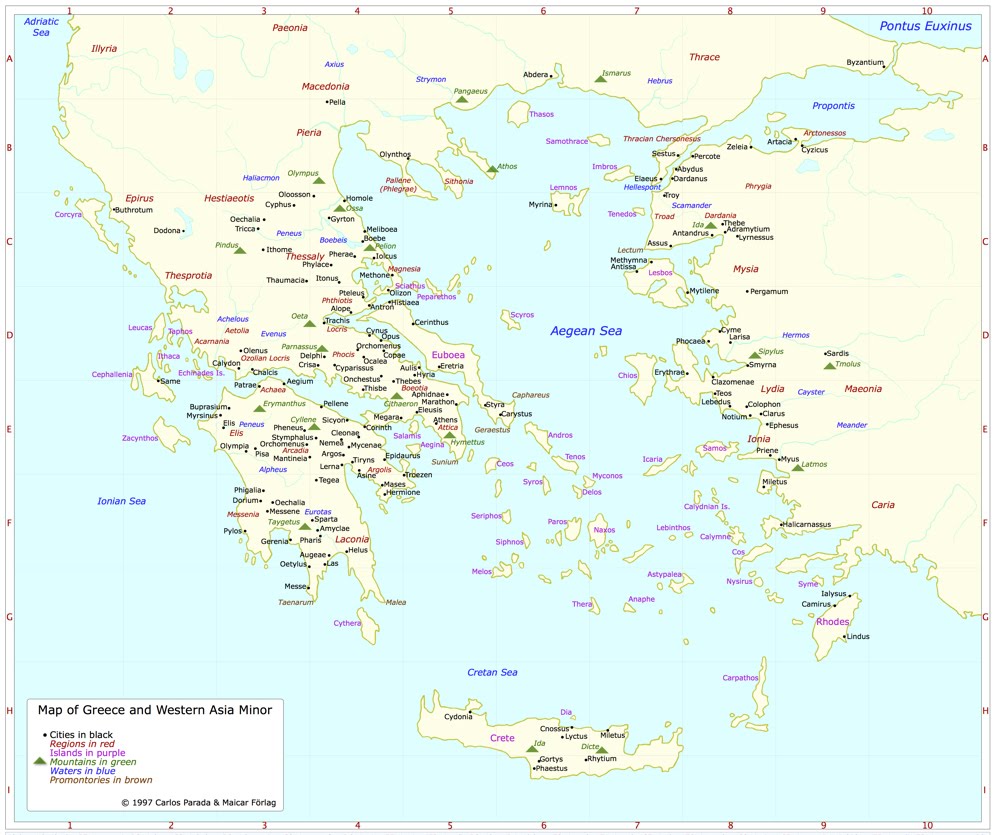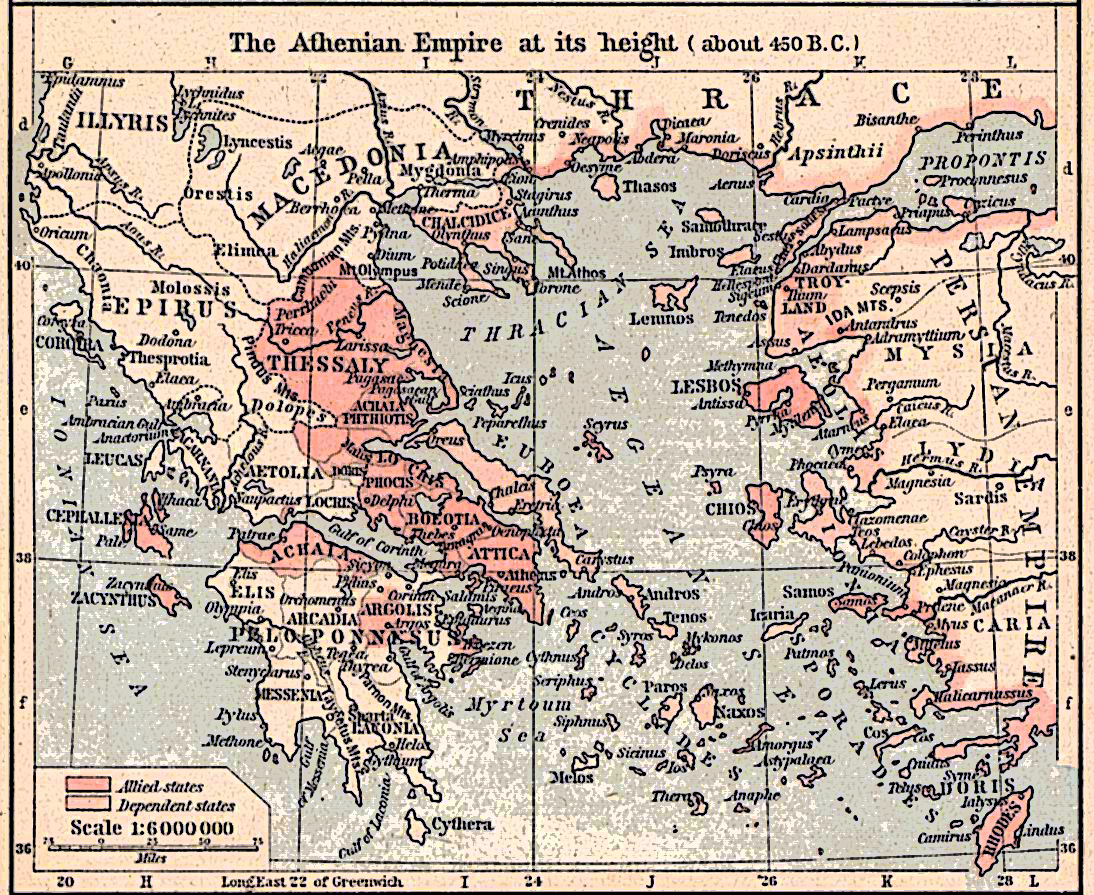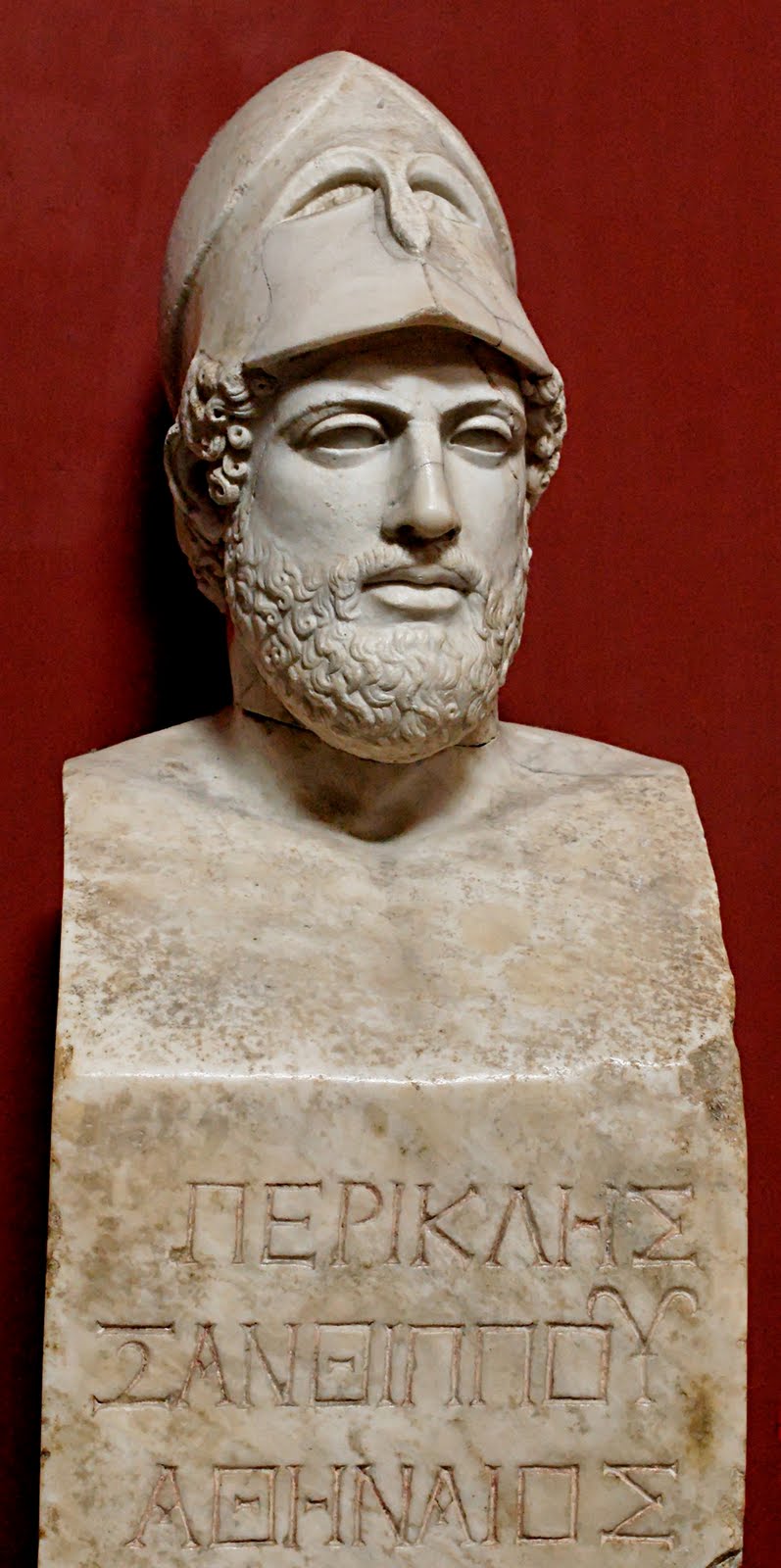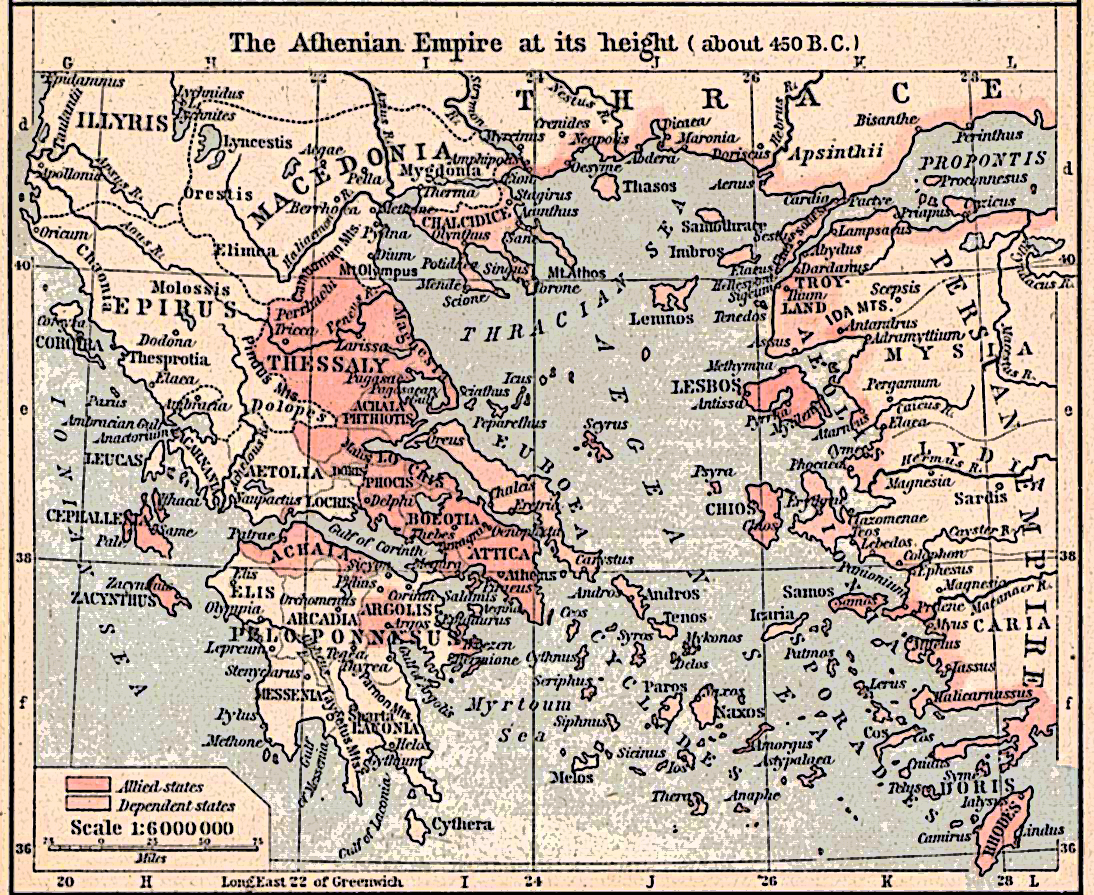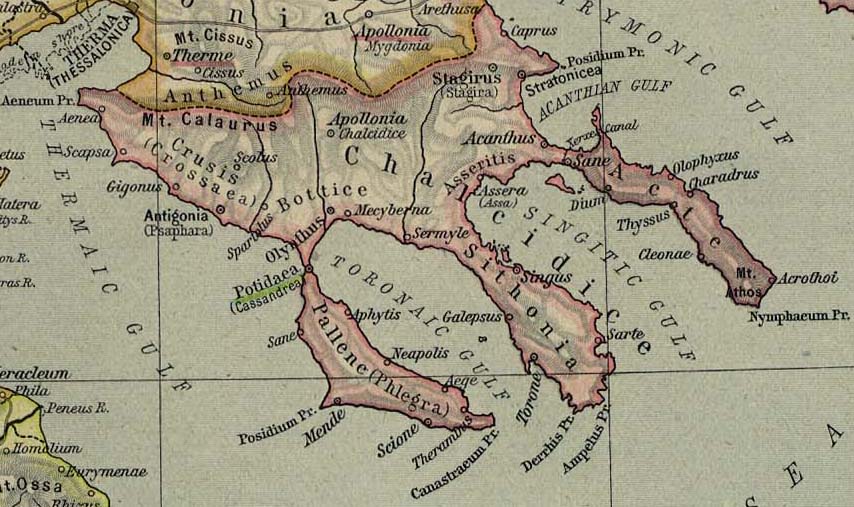Map of ancient GreeceThis post looks at Chapters 1 through 29 of Book Eight, covering the activities immediately after the defeat of Athens in Sicily at the end of summer 413 BC into the winter of 412/1 BC. The focus of the war and Thucydides’ history turns to the Aegean Sea and Ionia as many […]
Tag: The Peloponnesian War
The Athenians hasted to get the river Asinarus; not only because they were urged on every side by the assault of the many horsemen and other multitude, and thought to be more at ease when they were over the river, but out of weariness also and desire to drink. When they were come unto the […]
Athenian siege of Syracuse Picture source The Thracians, therefore, that came too late to go with Demosthenes, they presently sent back, as being unwilling to lay out money in such a scarcity: and gave the charge of carrying them back to Diitrephes, with command as he went along those coasts, (for his way was through […]
Athenian siege of Syracuse Picture source And the Syracusian horsemen, which were ever abroad for scouts, spurring up to the camp of the Athenians, amongst other scorns asked them, whether they came not rather to dwell in the land of another than to restore the Leontines to their own. (Book Six, Chapter 63) This post […]
The same winter the Athenians, with greater forces than they had before sent out with Laches and Eurymedon, resolved to go again into Sicily; and if they could, wholly to subdue it: being for the most part ignorant both of the greatness of the island, and of the multitude of people, as well Greeks as […]
YouTube link A modern re-enactment of the negotiations between the Athenians and the Melians as reconstructed by Thucydides, the ancient Greek historian of the Peloponnesian War (taken from The War that Never Ends, 1991, directed by Jack Gold)This post looks at Chapters 84 through 116 of Book Five, covering what is commonly called the Melian […]
This post looks at Chapters 1 through 83 of Book Five, covering the end of the one-year truce, the second battle of Amphipolis, and the beginning of the “false peace”. All quotes come from the Thomas Hobbes translation. As usual with Thucydides, he has packed a lot of information into a short passage. I will […]
I’m going to take a break today from reading and posting. Well, except for this post, which will ramble about my first (remembered) introduction to Thucydides. I was an impressionable third-grader when my parents decided to go see “Patton”. For some reason, they decided to take me. The theater was so crowded we had to […]
This post looks at Chapters 89 – 135 of Book Four, covering the winter of 424/3 BC through the spring of 422 BC. Included in this section is the battle of Delium, one of the major ground battles during the entire Peloponnesian War. All quotes come from the Thomas Hobbes translation. Map of Ancient AtticaDelium […]
Map of ancient Greece Five hundred chapters to go. Not that I’m counting. This post looks at Chapters 52 – 88 of Book Four, covering the summer of 424 BC. As you might have guessed from the subjects in the post heading it was a busy few months. All quotes come from the Thomas Hobbes […]
The first fifty-one chapters of Book Four cover activity that occurred in 425BC. I’ll focus on the Athenians setting up fortifications at Pylus (as spelled in my version, “Pylos” in most modern texts) and their siege of the Spartans on the island of Sphacteria. All quotes come from the Thomas Hobbes translation. Pylus can be […]
The last chapters of Book Three, from Chapters 86 to 116, reflect a change in strategy in the war for Sparta and Athens and Thucydides’ narrative changes to follow the activity. Also, as the war progresses, new characters emerge as significant players in the history. There is a lot going on in this short section […]
Map of Greece Corcyra (Corfu) is located toward the upper left (c1) Plataea isn’t depicted, but is southwest of Thebes (E4) Picture sourceThe post’s title comes from Leo Strauss’ essay on Thucydides and it describes perfectly the short section in Book Three, Chapters 51 – 85, covering the fall of Plataea and the civil strife […]
Map of ancient Greek world Picture sourceThis post looks at the first fifty chapters of Book Three, covering the revolt of Lesbos (with a focus on Mytilene) and the remarkable Athenian speeches of Cleon and Diodotus. All quotes come from the Thomas Hobbes translation unless otherwise noted. And you can’t imagine the restraint I’ve had […]
The Athenian empire (and surrounding areas) around 450 BC Picture source (I’m recycling this picture since it has the cities/regions mentioned in this post)This post looks at the end of Book Two (Chapters 66 – 103), covering from Pericles’ last speech to the end of the third year of the war. All quotes come from […]
The Plague of Athens by Michael Sweerts Picture sourceThis post looks at Book Two Chapters 47 – 65, which covers part of the second year of the war (430BC). All quotes come from the Thomas Hobbes translation. I realize I’m loading up on the quotes in this post, but I hope they prove helpful. Plague […]
This post looks at Book Two through the first 46 chapters. All quotes come from the Thomas Hobbes translation. Spartan strategy The Spartan king Archidamus attempted to dissuade his countrymen from declaring war against Athens in Book One (chapters 80 – 85). Archidamus raised the following concerns: Athens would be a powerful foe, a war […]
Bust of Pericles Inscription: “Pericles, son of Xanthippus, Athenian” Picture sourceThe question I’m focusing on in Book One centers on Thucydides’ claim for the reason for the Peloponnesian War. Not that I’m hoping to resolve the actual reasons…it’s more like I’m trying to understand Thucydides’ outlook…knowing where to take him with a grain of salt […]
The Athenian empire (and surrounding areas) around 450 BC Picture source Pentecontaetia (Greek, “the period of fifty years”) is the term used to refer to the period in Ancient Greek history between the defeat of the second Persian invasion of Greece at Plataea in 479 BC and the beginning of the Peloponnesian War. (from Wikipedia) […]
Chalcidice in northern Greece(For those that followed Herodotus, Xerxes’ canal northwest of Mount Athos is noted)Picture source “For they love innovation, and are swift to devise, and also to execute what they resolve on. But you on the contrary are only apt to save your own; not devise any thing new, nor scarce to attain […]

